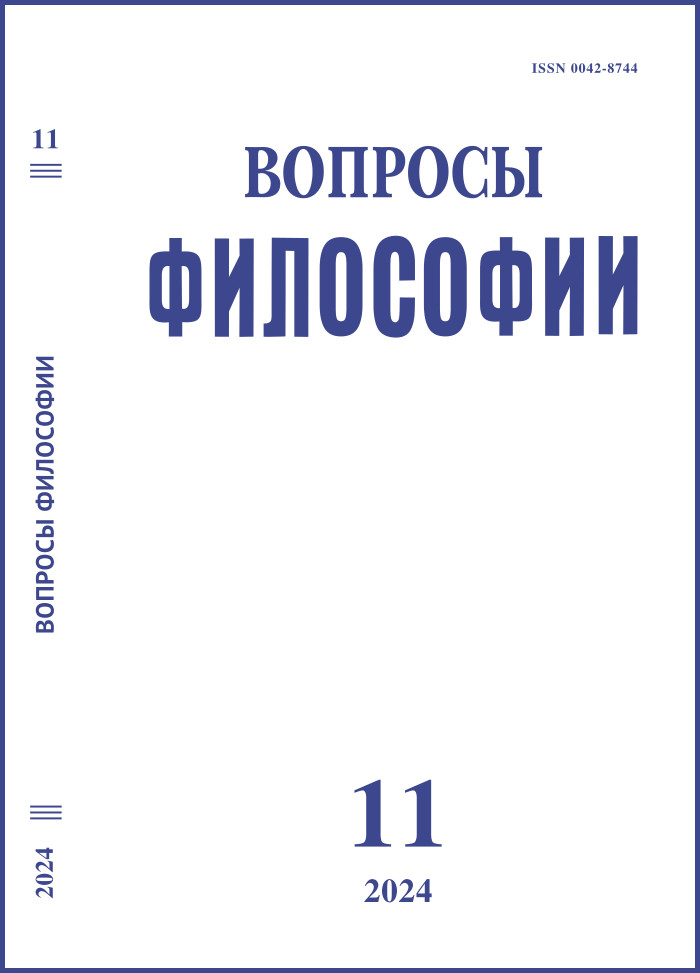Social Philosophy and Science: Causality, Patterns, and Invariants of Social Development (“Round Table” Materials)
DOI:
https://doi.org/10.21146/0042-8744-2024-11-74-98Keywords:
social philosophy, social theory, causality, social laws, fragmentation, science, subjectivity, structure, action, stateAbstract
In June 2024, the “round table” “Social Philosophy and Science: Causality, Patterns, and Invariants of Social Development” was held at the Faculty of Philosophy of Lomonosov Moscow State University. The event was organized by the Faculty of Philosophy of Moscow State University, the journal Voprosy Filosofii, and participants of the research project “Analysis of Social Causality and Invariants of Social Development as a Method for Overcoming the Fragmentation of Socio-Philosophical Knowledge”, supported by the Russian Science Foundation. The following questions were proposed for discussion: 1) What is the epistemological status of contemporary social philosophy? 2) Social philosophy – social theory – sociology: issues of correlation; 3) What are the causes of the crisis of fragmentation in social philosophy, and how can it be overcome? 4) What are the criteria for a “good social theory”? 5) What are the possible forms of interdisciplinary collaborations in modern social research? The core of the discussion was the problem of the high fragmentation of socio-philosophical knowledge and the discussion of possible ways to overcome it (particularly focusing on the intellectual resources of systemic-communicative theory as the most “economical”
approach). The speakers highlighted the diversity of methodological approaches in contemporary social research and discussed the search for possible ways of effective interdisciplinary interaction in the absence of a stable consensus regarding the conceptual status of social philosophy. Drawing on historical experiences of discussing relevant issues, the participants demonstrated that one way to overcome the crisis is the concretization of social realities

